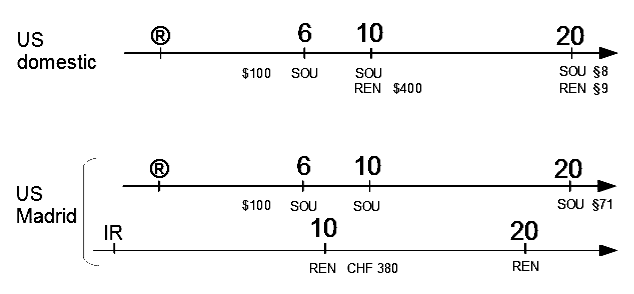US trademark practitioners are just now starting to get asked by foreign clients to do a ki nd of filing that never existed before about September of 2014. The filing is a ten-year Statement of Use for a US Madrid registration. This blog article tries to explain such filings and how they are similar to and different from other US trademark maintenance and renewal filings. If you already understand everything about the figure at right, you can skip reading this blog article!
nd of filing that never existed before about September of 2014. The filing is a ten-year Statement of Use for a US Madrid registration. This blog article tries to explain such filings and how they are similar to and different from other US trademark maintenance and renewal filings. If you already understand everything about the figure at right, you can skip reading this blog article!
Continue reading “How Madrid ten-year trademark renewals work”
